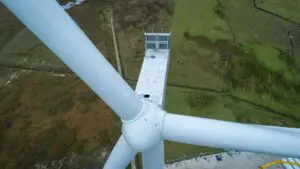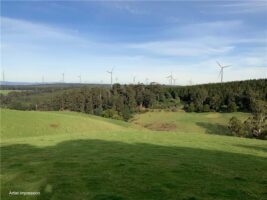The Australian CleanTech Index again outperformed the ASX200 for the month of March and the third quarter of the 2018 fiscal year.
As the wider market fell on worries about trade wars, the cleantech sector largely held up. Stocks such as SimsMetal Mthat are exposed to the US market and the Sustainable Minerals sector that relies on commodity pricing both suffered over the quarter, but otherwise the strong growth of the sector continues.
The twelve-month figure also remains ahead of the ASX200. Over the last 12 months, the Australian CleanTech Index recorded a gain of 12.6%, 14.4% ahead of the ASX200. Over the last 3 years, the Australian CleanTech Index leads the ASX200 by nearly 40%.
The month’s performance saw seven 7 companies with gains of more than 15%. The greatest percentage gains were recorded by Cobalt Blue Holdings (COB), Bluglass (BLG) and Bass Metals (BSM). These gains were more than offset by 20 companies recording losses of more than 15% led by Eden Innovations (EDE), Papyrus Australia (PPY) and Tag Pacific (TAG).
The quarter’s performance was driven by 9 companies with gains of more than 25%. The greatest gains were recorded by Australian Vanadium (AVL), Quantum Energy (QTM) and Cobalt Blue Holdings (COB). These losses were also more than offset by 15 companies recording losses of more than 25% led by BuildingIQ (BIQ), Environmental Group (EGL) and Collaborate Corp (CL8).
The Index underwent its quarterly rebalancing at the end of March which took account of recent share issues and other corporate activity. The following four companies were added to the Index in an ongoing sign that the sector is growing in both breadth and depth:
- BlackEarth Minerals (ASX:BEM) has a portfolio of high-quality graphite assets in West Australian and Madagascar. The Maniry and Ianapera graphite projects in Madagascar are both in close proximity to the large, high-quality Molo project.
- Carbonxt (ASX:CG1) reduces environmental pollutants through the development of activated carbons. Its activated carbons are primarily utilised in capturing mercury emissions from coal-fired power stations and cement plants.
- Pearl Global (ASX:PG1) has a unique Thermal Desorption Unit (TDU) technology to process end of life rubber including waste tyres into oil, char, non-condensable gas and steel. These products can be sold commercially or further treated to create higher value added products.
- Simble Solutions (ASX:SIS) provides an integrated, end-to-end solution that combines the company’s software-as-a-service (SaaS) platform with energy meters that can monitor, control and monetise power usage in real-time. The solution principally caters to SME and enterprise markets.
To provide an analysis of the Australian CleanTech Index, a number of sub-indices have been developed. The performance of each of these sub-indices over the last five financial years and during 3Q of FY18 is shown in the table and chart below.
To provide better transparency of industry trends, an adjustment has been made to the sub-index structure with the Sustainable Minerals stocks separated out from the Efficiency and Energy Storage stocks to start a new sub-index going forward.


To track the performance of the more established companies, the Australian CleanTech 20 tracks the largest 20 largest Index constituents by market capitalisation.
The one new entrant to the Australian CleanTech 20 at this rebalance was First Cobalt Corp which replaced Neometals. Each of the constituents in the Australian CleanTech 20 has a market capitalisation of more than $220m with an average market capitalisation of $1.9 billion.
With 86 companies now falling under the coverage of the Index and with a record combined market capitalisation of $41.1 billion, the Australian CleanTech Index presents for the only complete picture of the Australian cleantech industry’s growth in a single measure.
The Quarterly Index Performance Report can be downloaded from here.
John O’Brien is Managing Director of Australian CleanTech.










